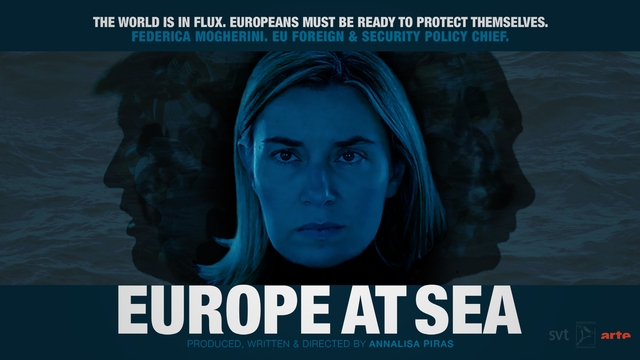Europe at Sea
Exclusive access to top of the EU as Europe faces a crumbling world order
 The world has not been so volatile since the end of WW2. Migration, conflicts, terrorism, cyber warfare, Brexit, the election of Trump and a shift towards nationalism are all contributing to the crumbling of the West’s world order. Through exclusive access to chief EU diplomat Federica Mogherini, award-winning film maker Annalisa Piras delivers a unique insight to the view from the top of the European Union, revealing how Europe is shaping up to face the challenges threatening its citizens’s security. Two years in the making, this beautifully cinematic film uncovers some inconvenient truths, dragging its viewers out of their comfort zones.
The world has not been so volatile since the end of WW2. Migration, conflicts, terrorism, cyber warfare, Brexit, the election of Trump and a shift towards nationalism are all contributing to the crumbling of the West’s world order. Through exclusive access to chief EU diplomat Federica Mogherini, award-winning film maker Annalisa Piras delivers a unique insight to the view from the top of the European Union, revealing how Europe is shaping up to face the challenges threatening its citizens’s security. Two years in the making, this beautifully cinematic film uncovers some inconvenient truths, dragging its viewers out of their comfort zones.
Festivals
 European Film Festival – Official Selection
European Film Festival – Official Selection






